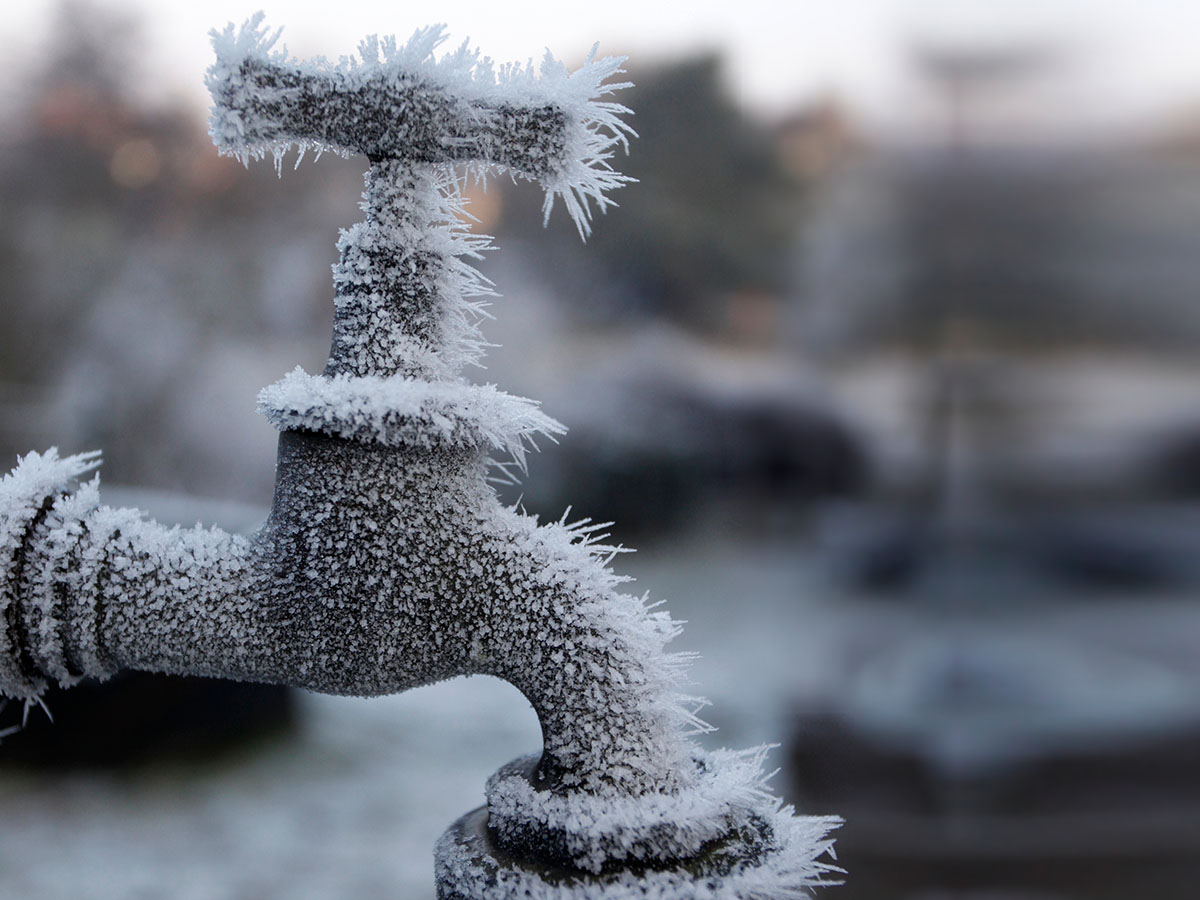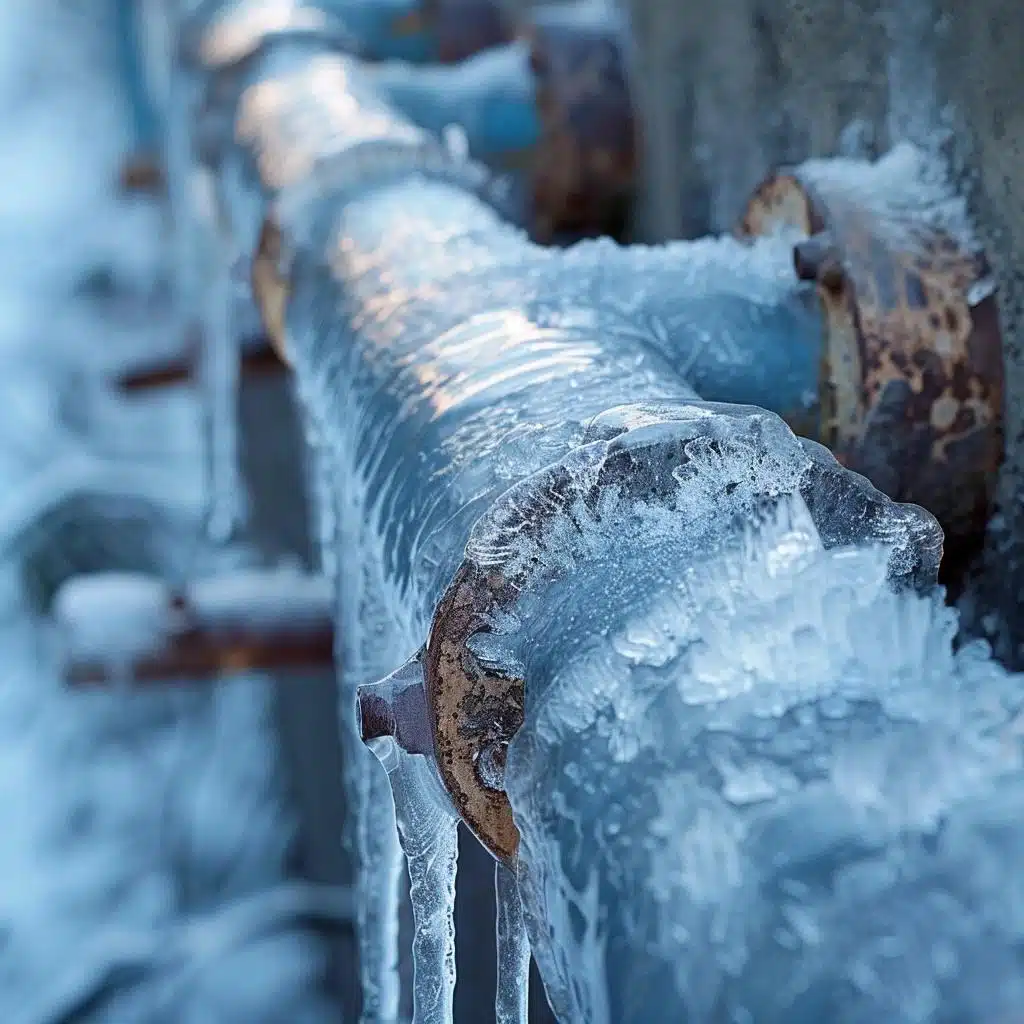Do you find yourself on the lookout for critical info involving Prevent Frozen Pipes ?

Cold weather can wreak havoc on your plumbing, particularly by freezing pipes. Right here's just how to stop it from happening and what to do if it does.
Intro
As temperature levels drop, the danger of icy pipes increases, possibly bring about expensive repair work and water damages. Recognizing just how to avoid icy pipes is important for property owners in cold environments.
Recognizing Frozen Pipes
What causes pipelines to ice up?
Pipes ice up when subjected to temperatures below 32 ° F (0 ° C) for prolonged periods. As water inside the pipelines freezes, it increases, putting pressure on the pipeline wall surfaces and potentially causing them to burst.
Risks and damages
Frozen pipelines can result in water supply disturbances, residential or commercial property damage, and pricey repair work. Burst pipelines can flood homes and trigger extensive structural damages.
Signs of Frozen Pipeline
Recognizing icy pipes early can prevent them from rupturing.
Just how to identify frozen pipes
Try to find lowered water circulation from taps, uncommon smells or sounds from pipes, and visible frost on exposed pipes.
Prevention Tips
Protecting prone pipelines
Cover pipelines in insulation sleeves or make use of warmth tape to secure them from freezing temperature levels. Concentrate on pipelines in unheated or outside locations of the home.
Home heating methods
Maintain indoor areas effectively heated up, especially locations with plumbing. Open closet doors to enable cozy air to distribute around pipes under sinks.
Shielding Outside Plumbing
Yard hoses and outside faucets
Detach and drain garden hoses before winter. Mount frost-proof spigots or cover exterior taps with protected caps.
What to Do If Your Pipes Freeze
Immediate actions to take
If you presume icy pipes, keep faucets open to eliminate stress as the ice melts. Utilize a hairdryer or towels taken in warm water to thaw pipes slowly.
Long-Term Solutions
Structural adjustments
Think about rerouting pipes far from outside walls or unheated areas. Include added insulation to attics, basements, and crawl spaces.
Upgrading insulation
Buy high-quality insulation for pipelines, attics, and walls. Correct insulation assists maintain constant temperatures and reduces the threat of frozen pipes.
Verdict
Preventing icy pipes requires aggressive steps and fast actions. By understanding the reasons, indications, and safety nets, house owners can safeguard their pipes during winter.
Helpful Tips to Prevent Frozen Pipes this Winter
UNDERSTANDING THE BASICS: WHY PIPES FREEZE AND WHY IT’S A PROBLEM
Water freezing inside pipes is common during the winter months, but understanding why pipes freeze, and the potential problems it can cause is crucial in preventing such incidents. This section will delve into the basics of why pipes freeze and the associated problems that may arise.
THE SCIENCE BEHIND FROZEN PIPES
When water reaches freezing temperatures, it undergoes a physical transformation and solidifies into ice. This expansion of water as it freezes is the primary reason pipes can burst. As the water inside the pipe freezes, it expands, creating immense pressure on the walls. If the pressure becomes too great, the pipe can crack or rupture, leading to leaks and water damage.
FACTORS THAT CONTRIBUTE TO PIPE FREEZING
Low Temperatures: Extremely cold weather, especially below freezing, increases the risk of pipes freezing. Uninsulated or Poorly Insulated Pipes: Pipes located in unheated areas, such as basements, crawl spaces, or attics, are more prone to freezing. Insufficient insulation or lack of insulation altogether exacerbates the problem. Exterior Wall Exposure: Pipes running along exterior walls are susceptible to freezing as they encounter colder temperatures outside. Lack of Heating or Temperature Regulation: Inadequate heating or inconsistent temperature control in your home can contribute to frozen pipes. PROBLEMS CAUSED BY FROZEN PIPES
- Pipe Bursting: As mentioned earlier, the expansion of water as it freezes can cause pipes to burst, resulting in significant water damage.
- Water Damage: When pipes burst, it can lead to flooding and water damage to your property, including walls, ceilings, flooring, and personal belongings.
- Structural Damage: Prolonged exposure to water from burst pipes can compromise the structural integrity of your home, leading to costly repairs.
- Mold and Mildew Growth: Excess moisture from water damage can create a favorable environment for mold and mildew growth, posing health risks to occupants.
- Disrupted Water Supply: Frozen pipes can also result in a complete or partial loss of water supply until the issue is resolved.
WHY CERTAIN PIPES ARE MORE PRONE TO FREEZING
- Location: Pipes located in unheated or poorly insulated areas, such as basements, crawl spaces, attics, or exterior walls, are at higher risk of freezing.
- Exterior Pipes: Outdoor pipes, such as those used for irrigation or exposed plumbing, are particularly vulnerable to freezing as they are directly exposed to the elements.
- Supply Lines: Pipes that carry water from the main water supply into your home, including the main water line, are critical to protect as freezing in these lines can affect your entire plumbing system.
- Underground Pipes: Pipes buried underground, such as those connected to sprinkler systems or outdoor faucets, can be susceptible to freezing if not properly insulated.
https://busybusy.com/blog/helpful-tips-to-prevent-frozen-pipes-this-winter/

As a keen reader about How to Prevent Your Pipes From Freezing, I assumed sharing that article was really helpful. Are you aware of anybody else who is occupied with the niche? Do not hesitate to promote it. Thank you for taking the time to read it.
Get A Quote